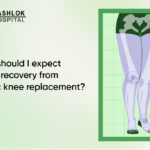What to Expect When Your Baby is in the NICU: A Detailed Guide for New Parents
A neonatal intensive care unit (NICU) is an intensive care unit in a hospital that specializes in looking after babies who are born sick or premature. The babies get around-the-clock care from a team of experts including specialist doctors, nurses, and other professionals. Most of the babies go to the NICU within 24 hours of birth. The duration of stay depends on their health condition. Some babies stay only a few hours or days; others stay weeks or months. When babies get well and the specialist care and equipment of a NICU are not required anymore, they move to a special care nursery. Having a baby in the Neonatal Intensive Care Unit (NICU) can be a challenging experience for any parent. It’s natural to feel overwhelmed and anxious, but understanding what to expect can help alleviate some of those feelings. Here’s a detailed guide to help you navigate this difficult time.
Don’t get panic with the NICU ambience
The NICU is equipped with advanced medical technology to support premature or ill infants. You may see machines such as ventilators, incubators, monitors, and feeding tubes. The staff will explain each device and its purpose. Don’t panic seeing all these things as they are provided in the NICU to protect your newborn from any difficult situation. Let’s delve into the important things which you see there.
- A series of taps or hand sanitiser dispensers will be there as soon as you enter the NICU. Babies in NICUs are highly susceptible to infections. So, you need to wash your hands properly to reduce the risk of infections to the newborn.
- The NICU periodically dims the light making the environment very cozy for the kids. This is because too much noise and light can impact the babies badly.
- Babies are covered with incubators to keep their bodies at the right temperature.
- Depending on the medical needs of the babies in the NICU, there might be monitors attached to babies with cords to measure breathing rate, heart rate, blood pressure and the amount of oxygen in their blood.
- A soft small feeding tube might be attached through their nose and directly into their stomach.
- The staff could be wearing special gowns to reduce the risk of infection.
All these things keep babies safe and comfortable, with as little extra handling as possible. The NICU is usually a calm place, with nurses and doctors quietly looking after the babies and other specialists coming in and out.
Your role in NICU
You’re the most important person in your baby’s life although your baby needs care from specialist staff in the NICU. Despite the medical environment, there are ways to bond with your baby in the NICU.
1. You can hold your baby (if permitted), talk to them, and participate in their care, such as diaper changes and feeding (if applicable).
2. Family-centered care in the NICU is considered the best approach to care. It’s about treating you and your family with respect and working as a team with you to make decisions about your baby’s care and treatment in the NICU.
3. Hospitals also typically have things like comfortable chairs next to your baby, a parent room nearby for meals, tea and coffee, a room for you to stay overnight with your baby before taking them home, and play materials and play areas for your baby’s siblings.
4. The medical team will provide regular updates on your baby’s condition and treatment plan. Don’t hesitate to ask questions or seek clarification if you don’t understand something. Understanding your baby’s medical status can help ease anxiety.
Takeaway
In conclusion, having a baby in the NICU can be a challenging and emotional experience, but you’re not alone. Lean on the support of the medical team at Aashlok hospital, family, and friends, and take each day one step at a time. Your resilience and love will help guide your baby through this journey. Premature or sick infants may reach developmental milestones at a different pace. The NICU staff at the hospital will monitor your baby’s growth and development closely and provide interventions or therapies as needed. The goal of the NICU is to stabilize your baby and prepare them for discharge. The medical team will work with you to develop a discharge plan, which may include home healthcare services, follow-up appointments, and specialized care instructions. Remember to take care of yourself during this stressful time. Get enough rest, eat healthily, and seek support when needed. You’ll be better equipped to care for your baby if you prioritize your well-being.
FAQS
How can I help my new parents with their baby in the NICU?
During this challenging time, there are several ways you can support your new parents as they navigate the NICU journey with their baby. Firstly, offer emotional support by actively listening to their concerns and providing a comforting presence. Assist with practical tasks such as running errands, preparing meals, or taking care of household chores to alleviate some of their stress. Educate yourself about the NICU environment and procedures so you can better understand what they’re going through and offer informed support. Offer to accompany them to NICU visits or provide transportation if needed.
What to expect as a NICU parent?
As a parent with a baby in NICU, it’s important to prepare for a rollercoaster of emotions and a unique set of challenges. Firstly, expect a mix of fear, anxiety, and overwhelm. Seeing your baby hooked up to machines and surrounded by medical staff can be incredibly daunting. However, also anticipate moments of hope and progress as your baby receives expert care. Form close bonds with the NICU staff who will become your support system during this time. Your sleep patterns and daily life might be temporarily disturbed. Financial strain may also be a reality due to medical bills, time off work, and travel expenses if the NICU is far from home. Lastly, expect resilience to emerge within yourself and your family. Despite the challenges, many NICU parents find strength they never knew they had and forge deep connections with their babies as they journey through this experience together.
What are the challenges of NICU parents?
Parents with infants in the Neonatal Intensive Care Unit (NICU) face a myriad of challenges that can be emotionally, physically, and financially taxing.
- Firstly, the uncertainty surrounding the health and prognosis of their newborn can be overwhelming. The constant fluctuations in the baby’s condition create immense stress and anxiety for parents.
- The separation from their newborn is another significant challenge. Many parents are unable to hold or bond with their baby immediately after birth, which can hinder the development of a strong parent-child relationship and exacerbate feelings of helplessness and guilt.
- Lastly, navigating the healthcare system and advocating for their child’s needs can be challenging, particularly for parents who are unfamiliar with medical terminology and procedures.
Overall, the journey of NICU parents is marked by uncertainty, stress, and emotional turmoil, requiring substantial support from healthcare providers, family, and friends.
How much time do parents spend at the NICU?
The amount of time parents spend at the NICU can vary widely based on individual circumstances, including the baby’s condition, hospital policies, and the parents’ responsibilities and availability. In many cases, parents spend as much time as possible with their baby in the NICU, often staying for several hours each day or even around the clock. Some parents may need to balance their time between the NICU and other responsibilities, which can limit the amount of time they can spend with their baby.










